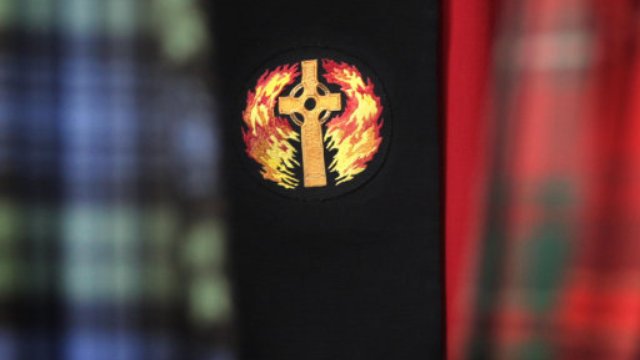Church Asked To Apologise For 'History Of Discrimination' Against Gay People
25 May 2017, 07:38

The Church of Scotland will be asked to apologise for a ''history of discrimination'' against gay people in a key debate at its General Assembly.
A report from the Church's Theological Forum could also see it move closer to allowing ministers to perform same-sex marriages.
The annual General Assembly in Edinburgh, which started last weekend, will be asked to authorise a further study on the legal implications of conducting same-sex marriages and report back in 2018.
The theological report calls for ''the Church to take stock of its history of discrimination at different levels and in different ways against gay people and to apologise individually and corporately and seek to do better''.
It also proposes that a church committee researches allowing nominated ministers and deacons to carry out same-sex ceremonies but wants to retain the ability for ''contentious refusal'' from those opposed to same-sex marriage.
Gay marriage became legal in Scotland in 2014 but the Church of Scotland has protection under the equalities legislation and the research by the Legal Questions Committee will aim to ensure officials who refuse to carry out the services cannot be prosecuted.
A range of theological perspectives on same-sex marriage are examined in the paper.
These range from the traditionalist opinion, based on the view that biblical writers condemned same-sex acts meaning the Church had to forbid them, to more ''inclusive arguments'' that the writing was made in ''cultural contexts very different from our own and referred to individual acts rather than committed and faithful people willing to enshrine their relationships in vows before God''.
The proposed major shift in policy follows controversial moves to appoint the first openly gay minister Rev Scott Rennie in 2009 and last year's decision to allow ministers to be in same-sex marriages.
Mr Rennie welcomed the report and said he hoped it would lead to ministers being able to carry out same-sex marriages.
Speaking in April, he said: ''Over the last 10 years or more the Church has step by step been taking a move to more inclusion.
''Up to now the General Assembly has constantly moved, some would say too slowly but I'm more pragmatic, I think it has moved in a good direction.
''It has recognised and this report recognises the place of the Christian vocation of thousands of LGBT people within the Kirk's membership and adherence, so I would be quite hopeful that we would move forward.''






